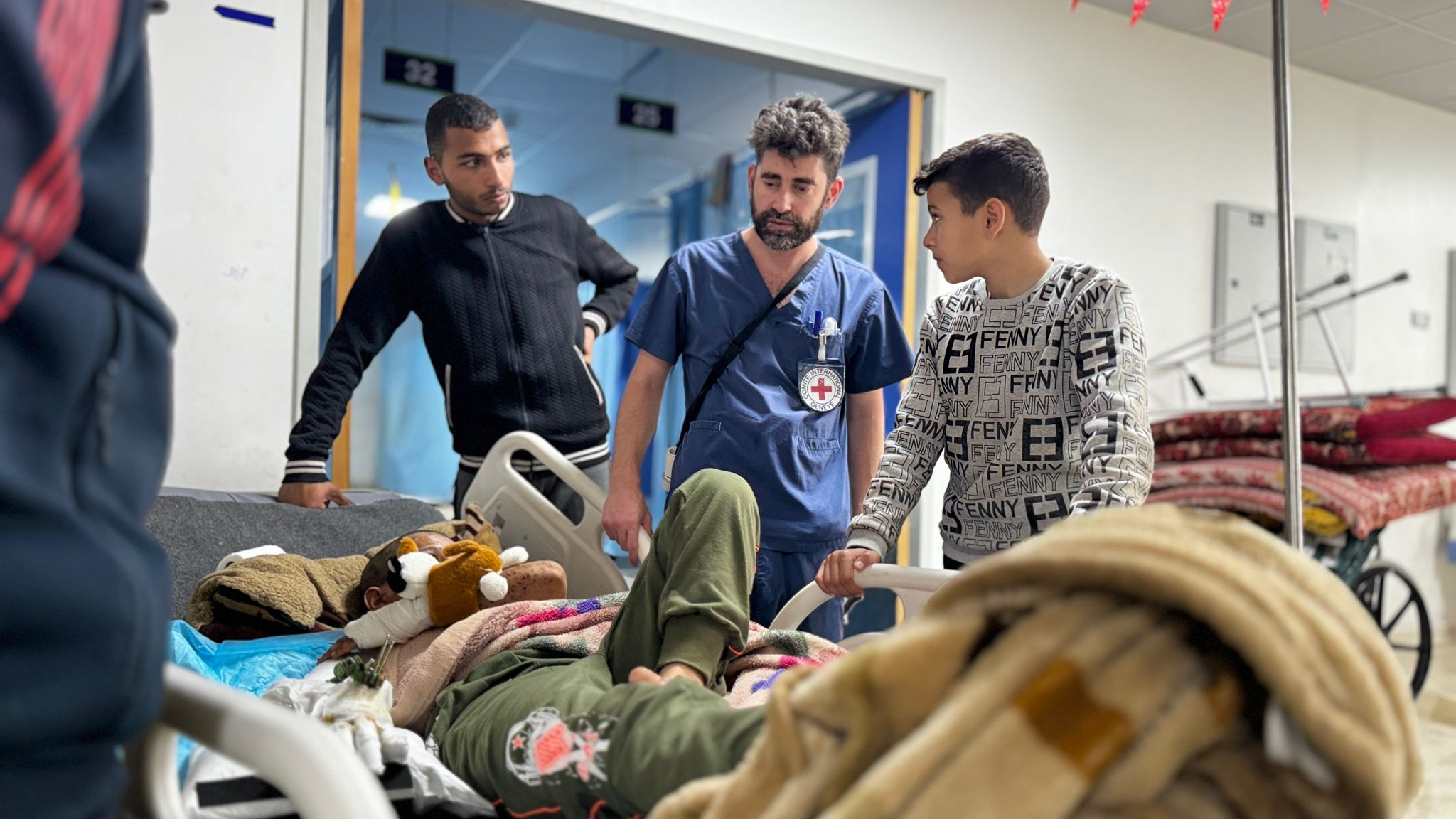

Australians understand that nuclear weapons kill indiscriminately and widely. Most of us know that the effects of nuclear weapons last for decades and longer. We also know that using nuclear weapons is simply a step too far in the name of security. The impact on humanity would be an unacceptable catastrophe.
Yet many of us don’t know that today there are more than 15,000 nuclear weapons, each one far more powerful than those used in Japan in 1945. It’s also alarming that 1,800 bombs are always on high alert.

Many may not remember that nuclear bombs killed as many as 210,000 people in 1945. Thousands have died since from sickness caused by the nuclear fallout. And the fallout still causes daily suffering for too many Japanese families.
Even closer to home Indigenous Australians still suffer from the effects of nuclear weapons testing in their homelands at Maralinga, from 1956-1963.
In 1945, the International Red Cross, Red Crescent Movement called on all “States to ensure they are never used again and to prohibit their use and eliminate them.”
World leaders are inching closer to making this happen.
Australian and global leaders increasingly recognise that the perceived security that modern nuclear weapons provide is at the risk of indiscriminate killing, widespread suffering and environmental damage on a massive scale.
They understand that every day, the risks mount of a nuclear incident triggered by aggression, an accidental explosion and cyber-attack or of nuclear weapons being appropriated by malicious armed groups.
If a one-megaton nuclear weapon was dropped on a major city such as New York, some 2.25 million people would die, one million of them in 11 seconds. The bomb would cause a firestorm 100 times the size of Melbourne’s central business district.
Humanitarian relief is Red Cross core business. Yet, like all other humanitarian agencies, we would be powerless to help. Radiation would make the blast site and surrounding areas inaccessible, leading to horrific long-term health problems. Hospitals would be destroyed and no usable infrastructure would remain.
This is why for decades, Red Cross has been calling for the prohibition and elimination of nuclear weapons.
It is also why all governments across the world are starting to follow the path to a nuclear weapons free future.
The Nuclear Weapons Prohibition Treaty opened for signature at the United Nations just over one year ago and it is gathering steam as countries sign up.
Yet these weapons are still seen as essential in the defence strategy of the nine nuclear nations and thirty plus additional states who shelter under what’s known as the ‘nuclear umbrella’.
Some argue that non-nuclear countries, like Australia, do not have a role in the fight. Yet every nation has an interest because we would all suffer the terrible consequences of any use of nuclear bombs.
Even though Australia does not produce or own nuclear weapons, it has an interest in being lent protection under the ‘nuclear umbrella’ of the United States.
Nuclear-umbrella shielded countries can re-orient their nuclear-dependent security posture to one that is nuclear-free. South Africa is a great example.
An IPSOS survey conducted late last year for Nobel Peace Prize winning Melbourne-born organisation, the International Campaign to Abolish Nuclear Weapons, shows that 79 per cent of Australians support joining the majority of the world’s nations, who are signing up to the nuclear ban treaty.
These results match other recent polls showing that close to three quarters of Australians support the global trend to prohibit nuclear weapons.
Australia is committed to the international Nuclear Non-Proliferation Treaty, and some states argue this is the better pathway.
But recently at the UN in New York, the International Committee of the Red Cross urged all States to go one-step further. It makes good sense to jump on board with our neighbours New Zealand, Indonesia and most Asian and Pacific countries who are signing and ratifying the treaty to ban nuclear weapons.
We know that nuclear weapons cannot be eradicated overnight. Yet there is a global groundswell; 122 countries have agreed to eliminate these bombs once and for all.
Nuclear weapons are an unacceptable threat to humanity. The international community must pull together to debunk any remaining legitimacy of nuclear weapons.

Humanitarian aid workers like Australian Red Cross delegate JP Miller rely on international humanitarian law for protection when deploying into conflict zones.
Red Cross pays our respects to the Aboriginal and Torres Strait Islander custodians of the country where we work, and to Elders, past, present and emerging.
Learn about our Reconciliation Action Plan and how we can all make reconciliation real.
This website may contain the images, voices or names of people who have passed away.


© Australian Red Cross 2026. ABN 50 169 561 394
